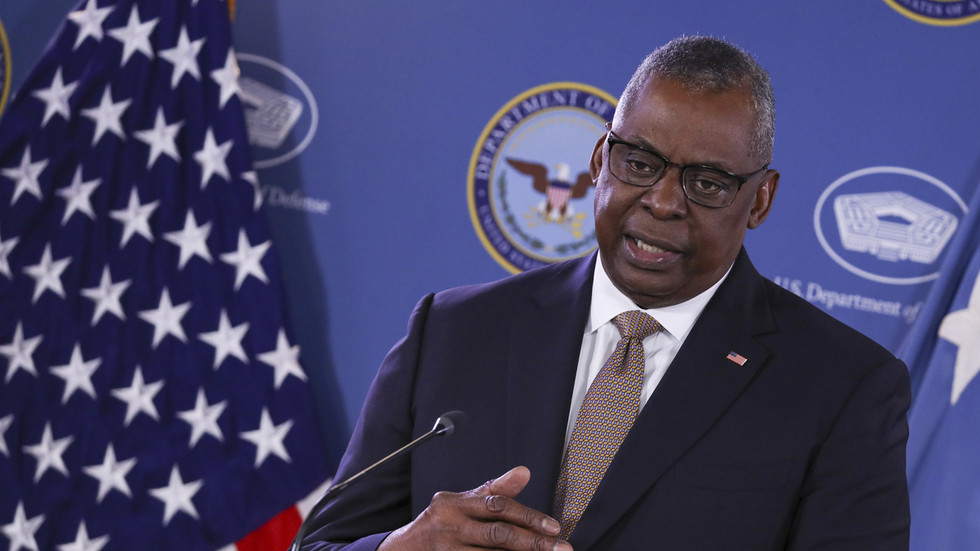In recent statements, U.S. Defense Secretary Lloyd Austin underscored the robust nuclear-based alliance between the United States and South Korea, emphasizing America’s readiness to support South Korea’s defense through both nuclear and non-nuclear military capabilities. This reinforcement of defense ties comes amidst increasingly volatile circumstances on the Korean Peninsula, particularly highlighted by North Korea’s latest intercontinental ballistic missile (ICBM) test. During a Pentagon press briefing, in collaboration with South Korean Defense Minister Kim Yong-hyun, Austin reaffirmed the U.S. commitment to South Korea’s defense, characterizing it as “ironclad” and inclusive of a comprehensive array of military capabilities. He announced plans for the return of large-scale military exercises between the two nations, aimed at enhancing combined readiness and operational interoperability.
North Korea has reacted stridently against the joint military drills conducted by the U.S. and South Korea, perceiving them as provocative rehearsals for a potential invasion. In a show of defiance, Pyongyang recently destroyed critical transport infrastructure linking the two Koreas as a clear demonstration of its dissatisfaction. Following this, reports emerged that North Korea launched an ICBM towards the East Sea, with leader Kim Jong-un asserting that the missile test was a direct response to what he termed a “dangerous nuclear alliance” between Washington and Seoul. Kim emphasized during this announcement that the North’s commitment to strengthening its nuclear capabilities remains unwavering, positioning the missile test as a justified and proportionate reaction to perceived threats posed by foreign military activities near its borders.
The rising tensions in the region have led to heightened military posturing from both North Korea and the U.S.-South Korea alliance. Pyongyang’s media has asserted that its recent ICBM test was justified as a defense against what they perceive as hostile maneuvers by its adversaries. Kim’s statements emphasized a firm resolve to advance North Korea’s nuclear arsenal, underscoring a broader sentiment within the North Korean regime that sees the U.S.-South Korea military alliance as a significant threat. Moreover, North Korea’s actions come in a broader context of its military cooperation with other nations, including claims by U.S. officials that North Korea has provided military assistance to Russia amid the ongoing conflict in Ukraine.
The Pentagon’s accusations concerning North Korea’s military involvement in support of Russia add another layer to the already complex geopolitical landscape. Citing intelligence, U.S. officials allege that North Korea has dispatched upwards of 10,000 troops to Russia for training purposes, possibly intended for deployment against Ukraine. While there has been no official confirmation from Russian President Vladimir Putin regarding these claims, he acknowledged the existence of a military cooperation treaty between Russia and North Korea, allowing for exchanges that could lead to joint training exercises. This statement raises questions about the extent and nature of military collaboration between the two nations amidst escalating global tensions.
In summary, the renewed military collaboration between the United States and South Korea signals a strategic counterbalance to North Korea’s aggressive military developments and rhetoric. The U.S. commitment to South Korea’s defense includes advanced military capabilities and a commitment to returning to larger-scale military exercises aimed at enhancing regional security and readiness. On the other side, North Korea’s reactions, including its missile tests and infrastructural acts of defiance, underline the regime’s perception of direct threats emanating from these joint military endeavors.
The implications of the current situation extend beyond merely regional dynamics; they connect to a broader international context involving North Korea’s alleged support for Russia in the Ukraine conflict. This multifaceted scenario highlights the complexities of alliances and conflicts in global geopolitics, where military cooperation can lead to broader implications for security and diplomacy among nations. As both sides advance their military capabilities and adjust their strategies, it remains to be seen how these developments will shape the future landscape of military tensions in the Korean Peninsula and beyond.

